
Latest Coronavirus Disease COVID 19 News and Research
In the middle of the country, a hospital and its community prepare for the surge
Megan Kampling and her husband were only a few days into a spring break trip with their children when Kansas Gov. Laura Kelly shut down schools in an effort to slow the spread of the novel coronavirus.
UK and US companies lag behind other nations in rolling out COVID-19 diagnostic tests
Nations with high rates of coronavirus testing such as South Korea and Germany are also leading the world in commercialising COVID-19 diagnostic tests - far outstripping the domestic UK and US diagnostic industries, new research shows.
Coronavirus fuels explosive growth in telehealth ― and concern about fraud
On March 17, Medicare chief Seema Verma stepped to the podium at a White House coronavirus briefing and unveiled a "historic action" to promote virtual medical care, or telehealth.
Avacta successfully generates several highly specific Affimer reagents for COVID-19 antigen rapid test ahead of schedule as part of Cytiva partnership
Avacta Group plc is pleased to announce that it has successfully generated multiple Affimer reagents that bind the SARS-COV-2 viral antigen.
Scripps Research established international network to find antiviral compounds against COVID-19
With the COVID-19 pandemic continuing to spread around the globe, Scripps Research has quickly established an international network of collaborating scientific laboratories to leverage ReFRAME, the world's leading drug repurposing collection, to find antiviral compounds against the novel coronavirus.
Navy offers protective gear to first responders to fight coronavirus
To equip those on the front lines of coronavirus response, the Naval Undersea Warfare Center (NUWC) Division Keyport--in partnership with the U.S. Navy's Tech Bridge program--manufactured over 500 face shields and personal protection equipment for first responders at two hospitals and naval commands in the state of Washington.
Nanoengineers are using plant virus to develop COVID-19 vaccine
Nanoengineers at the University of California San Diego are working on a COVID-19 vaccine using an unconventional candidate: a plant virus.
Facebook helps coronavirus fight by mapping symptoms
Facebook just rolled out an interactive map showing how many people have reported symptoms of coronavirus disease (COVID-19) in counties across the United States. The map helps to determine the extent of the coronavirus pandemic in the country, providing insight into the areas needing more resources and which parts can be reopened.
Scientists identify new mechanisms that offer protection against Marburg infection
A detailed study of the monoclonal antibodies from a person who survived a Marburg infection led researchers to identify novel mechanisms that contribute protection against the disease, according to the latest findings of a collaborative team led by The University of Texas Medical Branch at Galveston and Vanderbilt University Medical Center.
Antibody testing in L.A. county reveals the magnitude of coronavirus spread
After weeks of physical and social distancing measures in place, many in the U.S. are worrying about how soon they can return to normal life. However, to lift restrictions, it is critical to ascertain accurate numbers of severe acute respiratory syndrome coronavirus 2 (SARS-CoV-2) carriers. Doing so will decrease the chance or even avoid the second wave of infections.
Experts share contingency plans to address increased COVID-19 cases in urban areas
In "Mobilization and Preparation of a Large Urban Academic Center During the COVID-19 Pandemic,"- published online in the Annals of the American Thoracic Society - experts from Philadelphia's Temple University Hospital share their contingency plans for meeting an increased demand for hospitalization, as well as their protocols and training plans to minimize health care staff exposure to COVID-19 and ensure proper active and reserve staffing.
UK's policy places people aged 60-69 at increased risk of COVID-19
The 7.3 million people in the UK aged between 60 and 69 are at increased risk of severe illness and death from COVID-19.
Research offers clues to how SARS-CoV-2 gets into respiratory tissue and exploits our defenses
What makes SARS-CoV-2, the virus behind COVID-19, such a threat? A new study, led by Jose Ordovas-Montanes, Ph.D. at Boston Children's Hospital and Alex K. Shalek, Ph.D. at MIT, pinpoints the likely cell types the virus infects.
Nicaragua records sharp decline in intimate partner violence
The percentage of women and girls in Nicaragua's second-largest city who reported experiencing physical violence by their partners during their lifetimes decreased from 55% in 1995 to 28% in 2016, according to a new study published in the journal BMJ Global Health.
Researchers design UV sterilization stations to kill coronavirus on any surface
As the COVID-19 pandemic continues into its second month across the U.S., supplies of personal protective equipment such as N95 masks and face shields continue to run low at many hospitals.
Is hydroxychloroquine effective against COVID-19?
Following the emergence of a novel coronavirus in Wuhan, China, in the last month of 2019, it has spread globally to produce the first pandemic of the 21st century. The virus, called severe acute respiratory syndrome coronavirus 2 (SARS-CoV-2), has already affected over 2.5 million and killed more than 177,000 people as of April 22, 2020.
Researchers are exploring potential therapy for controlling infectious diseases
The engineering of specific virus-targeting receptors onto a patient's own immune cells is now being explored by scientists from Duke-NUS Medical School (Duke-NUS), as a potential therapy for controlling infectious diseases, including the COVID-19-causing virus, SARS-CoV-2.
P-BEST: Fast efficient COVID-19 virus testing before symptoms appear
A highly promising new study published on the preprint server medRxiv in April 2020 reports an efficient new method to conduct high-throughput testing of blood samples for the severe acute respiratory syndrome coronavirus 2 (SARS-CoV-2) which is causing the rapidly spreading pandemic of COVID-19 disease throughout the world. The method could revolutionize the diagnosis of new cases before they become symptomatic.
Using community memory to figure out the incubation period for COVID-19
The COVID-19 epidemic that began at the end of 2019 in China’s Wuhan city has now spread to over 185 countries and territories, taking over 177,000 lives out of approximately 2.5 million reported cases. Without either a vaccine or a reliable cure at hand, public health authorities are stretched to contain the virus spread.
Online searches predict daily incidence, deaths due to COVID-19 in US
The pandemic COVID-19 has affected more than 825,000 people in the US, but the daily number of new cases and deaths is not precise. A new study published on the preprint server medRxiv in April 2020 reports that Internet search interest could be used as a means to predict the daily incidence of cases in the US, as was proved in China.
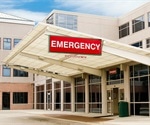


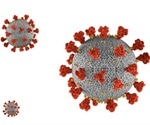
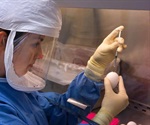


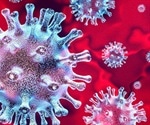
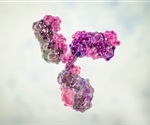
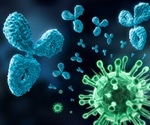
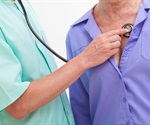
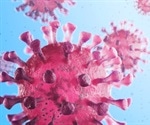

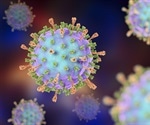


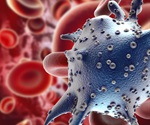
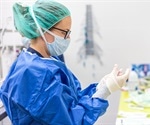
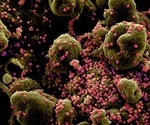
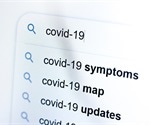





















.png)












No hay comentarios:
Publicar un comentario